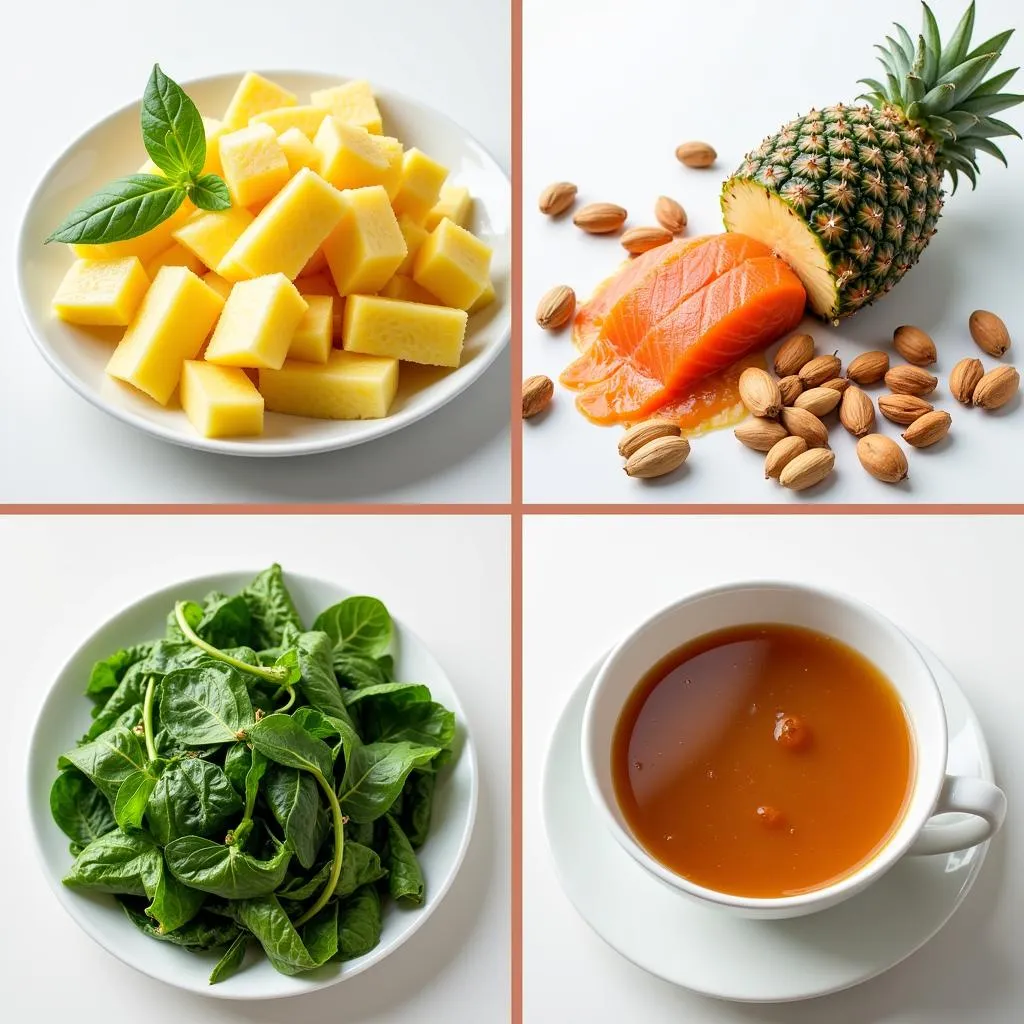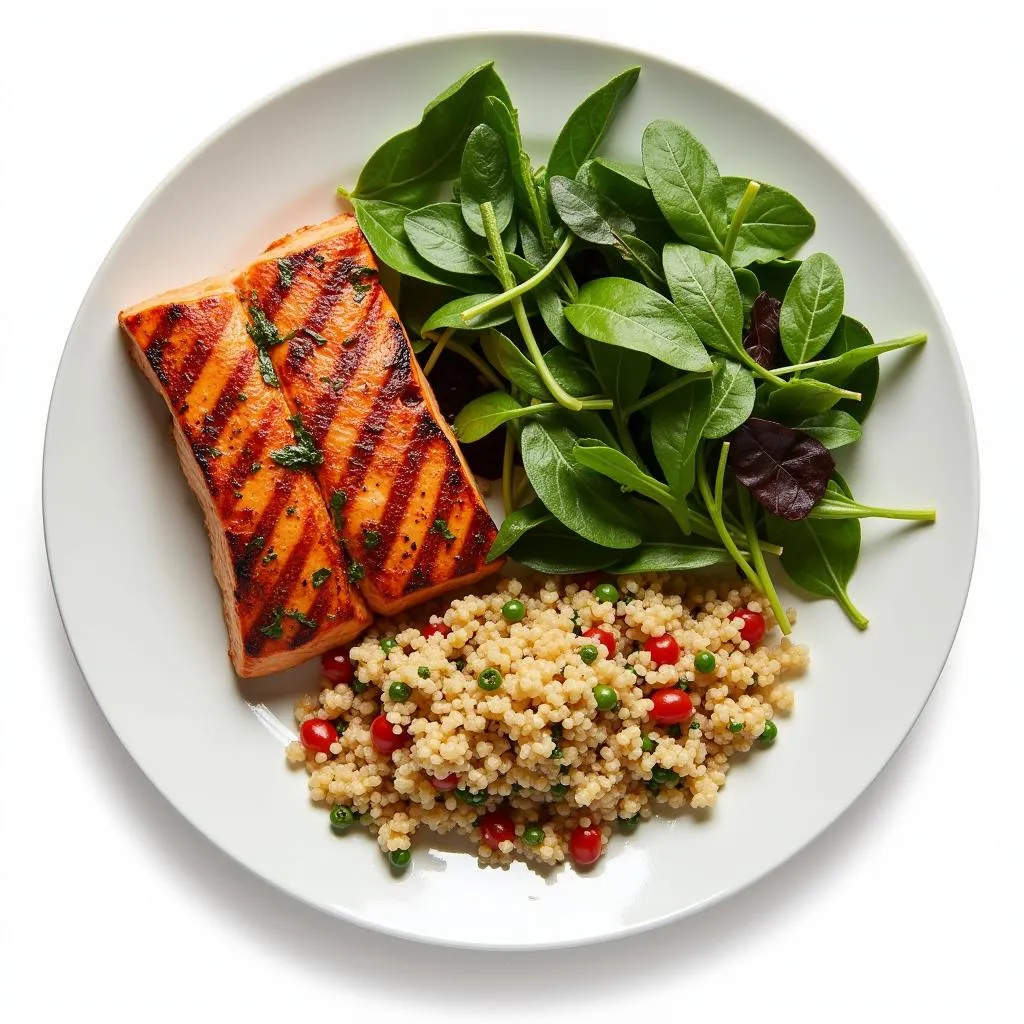After the excitement of embryo transfer, the two-week wait can feel like an eternity. While you can’t control everything, focusing on what you can control – like your diet – can empower you during this time. Choosing Foods To Support Implantation provides your body with the nutrients it needs to create the optimal environment for a successful pregnancy.
The Importance of a Nutrient-Rich Diet After Embryo Transfer
Just like a tiny seed needs fertile soil to sprout, a developing embryo requires a nutrient-rich environment to implant and grow. A healthy diet after embryo transfer is crucial for:
- Hormonal balance: Essential fats, vitamins, and minerals help regulate hormones, crucial for implantation and early pregnancy.
- Endometrial lining: A thick, healthy endometrial lining provides the ideal place for the embryo to attach. Certain nutrients, like iron and vitamin E, are known to support endometrial health.
- Blood flow and circulation: Adequate blood flow to the uterus is essential for delivering oxygen and nutrients to the developing embryo.
- Reducing inflammation: Chronic inflammation can interfere with implantation. Anti-inflammatory foods can help create a more receptive environment.
Top Foods to Support Implantation
While a balanced diet is always recommended, here are some specific foods that stand out for their potential to support implantation:
 Foods for implantation
Foods for implantation
- 1. Pineapple: This tropical fruit contains bromelain, an enzyme believed to aid implantation by reducing inflammation and promoting blood flow to the uterus. Enjoy pineapple in moderation throughout the two-week wait.
- 2. Brazil Nuts: These are packed with selenium, an essential mineral for healthy hormone production and thyroid function, both crucial for early pregnancy. Just 1-2 Brazil nuts a day is enough to reap their benefits.
- 3. Fatty Fish: Salmon, mackerel, and sardines are rich in omega-3 fatty acids, particularly DHA and EPA, which are crucial for endometrial health, reducing inflammation, and supporting the developing baby’s brain and nervous system.
- 4. Leafy Greens: Spinach, kale, and other leafy greens are brimming with folate, a B vitamin crucial for cell division and DNA synthesis – essential processes for a growing embryo.
- 5. Bone Broth: This nourishing broth is a good source of collagen, glycine, and other amino acids that support gut health and may reduce inflammation in the uterus.
Other Important Dietary Considerations
- Hydration: Staying hydrated is crucial for optimal blood flow and nutrient delivery. Aim for eight glasses of water per day.
- Protein: Adequate protein intake is essential for cell growth and development. Include lean protein sources like poultry, fish, beans, and lentils in your diet.
- Fiber: Fiber helps regulate blood sugar levels and promotes healthy digestion. Include plenty of fruits, vegetables, and whole grains in your meals.
- Limit Processed Foods: Highly processed foods often contain unhealthy fats, added sugars, and artificial ingredients that can interfere with hormonal balance and contribute to inflammation.
 Healthy plate for the two-week wait
Healthy plate for the two-week wait
Expert Insight:
“As a fertility nutritionist, I often advise my clients to focus on the quality of their diet during the two-week wait. Choosing whole, unprocessed foods over processed options is a simple but powerful way to support your body during this critical time.” – Sarah Jones, RD, Fertility Nutritionist
Lifestyle Tips to Complement Your Diet
- Manage stress: Stress can impact hormone balance and potentially hinder implantation. Engage in stress-reducing activities like yoga, meditation, or spending time in nature.
- Prioritize sleep: Aim for 7-9 hours of quality sleep per night. Adequate rest supports hormonal balance and allows your body to focus on the demands of implantation.
- Moderate exercise: Light to moderate exercise, like walking or swimming, can improve blood flow and reduce stress. Avoid strenuous workouts during this time.
FAQs about Diet and Implantation
1. Can I drink coffee during the two-week wait?
It’s best to limit caffeine intake to 200 milligrams per day or less, which is about one cup of coffee.
2. Are there any foods I should avoid after embryo transfer?
It’s generally recommended to avoid alcohol, unpasteurized foods (like soft cheeses), and high-mercury fish (like swordfish).
3. Can supplements help with implantation?
Talk to your doctor about whether specific supplements, like prenatal vitamins or additional folate, are right for you.
Nourishing Your Body for a Healthy Pregnancy
Choosing the right foods to support implantation is a proactive step you can take to increase your chances of a successful pregnancy. Remember, a balanced diet, combined with a healthy lifestyle, creates the optimal environment for your little one to thrive.
Need more support? Contact our team at Mina Cones Food for personalized dietary guidance. Call us at 02437655121, email minacones@gmail.com, or visit us at 3PGH+8R9, ĐT70A, thôn Trung, Bắc Từ Liêm, Hà Nội, Việt Nam. Our dedicated team is available 24/7 to assist you.